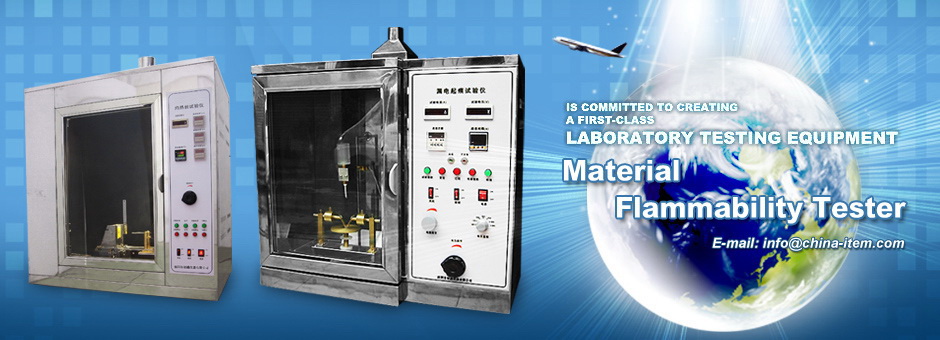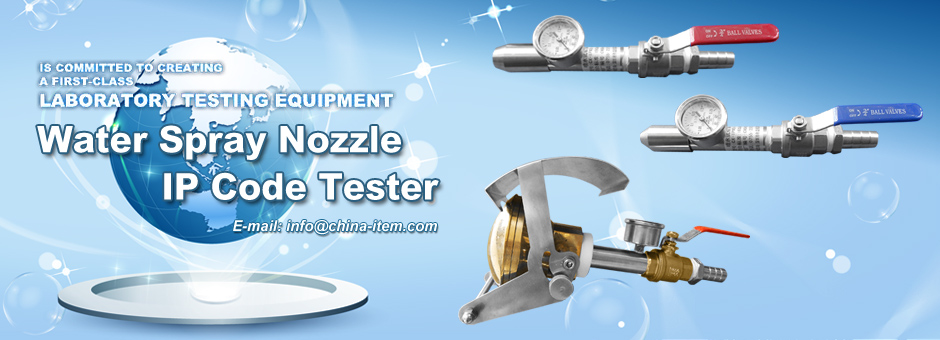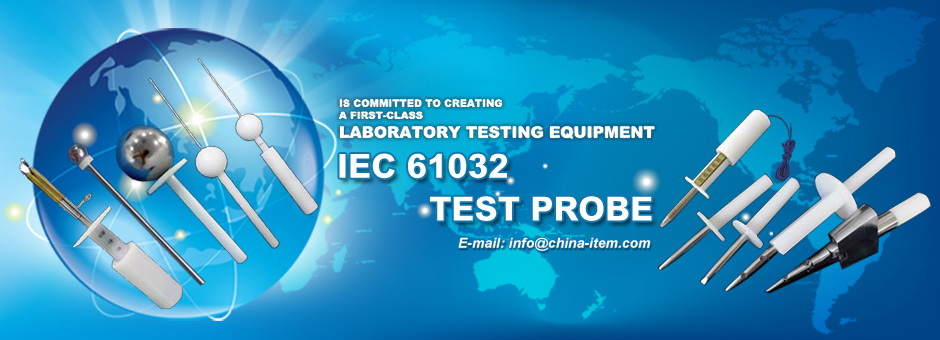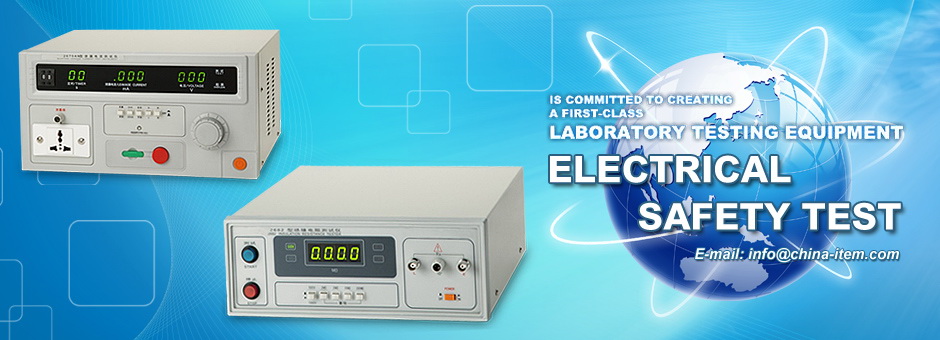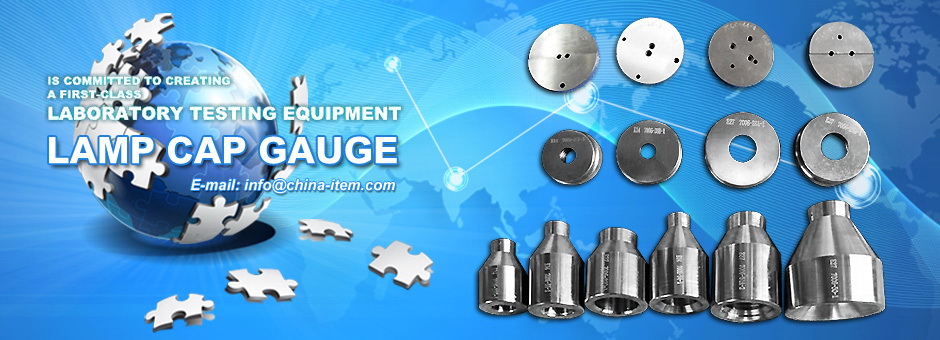contact us
products
- Main Products
- IEC Test Probe
- UL Test Probe
- Material Flammability Tester
- IP Code Tester
- Impact Test Apparatus
- Security Testing Machine
- Lamp Cap Gauge Tester
- Lampholders Gauge Tester
- Plug & Socket Tester
- Electrical Safety Tester
- LED Test Instruments
- Environmental Test Equipment
- Instrument Accessories
- Weighing Sensor
- Others Testing Equipment
technical articles
Company News
The IP Code, International Protection Marking, IEC standard 60529, sometimes interpreted as Ingress Protection Marking, classifies and rates the degree of protection provided against intrusion (body parts such as hands and fingers), dust, accidental contact, and water by mechanical casings and electrical enclosures. It is published by the International Electrotechnical Commission (IEC).
The standard aims to provide users more detailed information than vague marketing terms such as waterproof. The digits (characteristic numerals) indicate conformity with the conditions summarized in the tables below. Where there is no protection rating with regard to one of the criteria, the digit is replaced with the letter X.
For example, an electrical socket rated IP22 is protected against insertion of fingers and will not be damaged or become unsafe during a specified test in which it is exposed to vertically or nearly vertically dripping water. Another example is the Sony Xperia Z Ultra, one of the first cellular phones to be IP-rated; it is rated at IP58 and marketed as "dust resistant" and can be "immersed in 1.5 meters of freshwater for up to 30 minutes". and the Fluke 27 II & 28 II Digital Multimeters, rated at IP67, also with a high degree of resistance to dust and water. IP22 or 2X are typical minimum requirements for the design of electrical accessories for indoor use.
Code breakdown
| VIP verification | Solid particle protection | Liquid ingress protection | Mechanical impact resistance | Other protections |
|---|---|---|---|---|
| VIP | Single numeral: 0–6 | Single numeral: 0–9 | Single numeral: 0–9 | Single letter |
| Mandatory | Mandatory | Mandatory | No longer used | Optional |
Solid particle protection
The first digit indicates the level of protection that the enclosure provides against access to hazardous parts (e.g., electrical conductors, moving parts) and the ingress of solid foreign objects.
| Level | Object size protected against | Effective against |
|---|---|---|
| 0 | — | No protection against contact and ingress of objects |
| 1 | >50 mm | Any large surface of the body, such as the back of a hand, but no protection against deliberate contact with a body part |
| 2 | >12.5 mm | Fingers or similar objects |
| 3 | >2.5 mm | Tools, thick wires, etc. |
| 4 | >1 mm | Most wires, screws, etc. |
| 5 | Dust protected | Ingress of dust is not entirely prevented, but it must not enter in sufficient quantity to interfere with the satisfactory operation of the equipment; complete protection against contact (dust proof) |
| 6 | Dust tight | No ingress of dust; complete protection against contact (dust tight) |
Liquid ingress protection
The second digit indicates the level of protection that the enclosure provides against harmful ingress of water.
| Level | Protected against | Testing for | Details |
|---|---|---|---|
| 0 | Not protected | — | — |
| 1 | Dripping water | Dripping water (vertically falling drops) shall have no harmful effect. |
Test duration: 10 minutes Water equivalent to 1 mm rainfall per minute |
| 2 | Dripping water when tilted up to 15° | Vertically dripping water shall have no harmful effect when the enclosure is tilted at an angle up to 15° from its normal position. |
Test duration: 10 minutes Water equivalent to 3 mm rainfall per minute |
| 3 | Spraying water | Water falling as a spray at any angle up to 60° from the vertical shall have no harmful effect. |
Test duration: 5 minutes
Water volume: 0.7 litres per minute |
| 4 | Splashing of water | Water splashing against the enclosure from any direction shall have no harmful effect. |
Test duration: 5 minutes
Water volume: 10 litres per minute |
| 5 | Water jets | Water projected by a nozzle (6.3 mm) against enclosure from any direction shall have no harmful effects. |
Test duration: at least 3 minutes
Water volume: 12.5 litres per minute |
| 6 | Powerful water jets | Water projected in powerful jets (12.5 mm nozzle) against the enclosure from any direction shall have no harmful effects. |
Test duration: at least 3 minutes
Water volume: 100 litres per minute |
| 6K | Powerful water jets with increased pressure | Water projected in powerful jets (6.3 mm nozzle) against the enclosure from any direction, under elevated pressure, shall have no harmful effects. |
Test duration: at least 3 minutes
Water volume: 75 litres per minute |
| 7 | Immersion up to 1 m | Ingress of water in harmful quantity shall not be possible when the enclosure is immersed in water under defined conditions of pressure and time (up to 1 m of submersion). |
Test duration: 30 minutes The lowest point of enclosures with a height less than 850 mm is located 1000 mm below the surface of the water, the highest point of enclosures with a height equal to or greater than 850 mm is located 150 mm below the surface of the water |
| 8 | Immersion beyond 1 m | The equipment is suitable for continuous immersion in water under conditions which shall be specified by the manufacturer. However, with certain types of equipment, it can mean that water can enter but only in such a manner that it produces no harmful effects. |
Test duration: continuous immersion in water Depth specified by manufacturer, generally up to 3 m |
| 9K | Powerful high temperature water jets | Protected against close-range high pressure, high temperature spray downs. | — |
Additional letters
The standard defines additional letters that can be appended to classify only the level of protection against access to hazardous parts by persons:
| Level | Protected against access to hazardous parts with |
|---|---|
| A | Back of hand |
| B | Finger |
| C | Tool |
| D | Wire |
Further letters can be appended to provide additional information related to the protection of the device:
| Letter | Meaning |
|---|---|
| f | Oil resistant |
| H | High voltage device |
| M | Device moving during water test |
| S | Device standing still during water test |
| W | Weather conditions |
Mechanical impact resistance
An additional number has sometimes been used to specify the resistance of equipment to mechanical impact. This mechanical impact is identified by the energy needed to qualify a specified resistance level, which is measured in joules (J). This has now been superseded by the separate 'IK code' specified in EN 62262.
Although dropped from the 3rd edition of IEC 60529 onwards, and not present in the EN version, older enclosure specifications will sometimes be seen with an optional third IP digit denoting impact resistance. Newer products are likely to be given an IK rating instead. However there is not an exact correspondence of values between the old and new standards.
| Dropped IP level | Impact energy | Equivalent drop mass and height |
|---|---|---|
| 0 | — | — |
| 1 | 0.225 J | 150 g dropped from 15 cm |
| 2 | 0.375 J | 250 g dropped from 15 cm |
| 3 | 0.5 J | 250 g dropped from 20 cm |
| 5 | 2 J | 500 g dropped from 40 cm |
| 7 | 6 J | 1.5 kg dropped from 40 cm |
| 9 | 20 J | 5.0 kg dropped from 40 cm |
|
IK number |
Impact energy (joules) |
Equivalent impact |
|---|---|---|
| 00 | Unprotected | No test |
| 01 | 0.15 | Drop of 200 g object from 7.5 cm height |
| 02 | 0.2 | Drop of 200 g object from 10 cm height |
| 03 | 0.35 | Drop of 200 g object from 17.5 cm height |
| 04 | 0.5 | Drop of 200 g object from 25 cm height |
| 05 | 0.7 | Drop of 200 g object from 35 cm height |
| 06 | 1 | Drop of 500 g object from 20 cm height |
| 07 | 2 | Drop of 500 g object from 40 cm height |
| 08 | 5 | Drop of 1.7 kg object from 29.5 cm height |
| 09 | 10 | Drop of 5 kg object from 20 cm height |
| 10 | 20 | Drop of 5 kg object from 40 cm height |
German standard DIN 40050-9 extends the IEC 60529 rating system described above with an IP69K rating for high-pressure, high-temperature wash-down applications. Such enclosures must not only be dust-tight (IP6X), but it must also be able to withstand high-pressure and steam cleaning.
The test specifies a spray nozzle that is fed with 80 °C water at 8–10 MPa (80–100 bar) and a flow rate of 14–16 L/min. The nozzle is held 10–15 cm from the tested device at angles of 0°, 30°, 60° and 90° for 30 seconds each. The test device sits on a turntable that rotates once every 12 seconds (5 rpm).
The IP69K test specification was initially developed for road vehicles, especially those that need regular intensive cleaning (dump trucks, cement mixers, etc.), but it also finds use in other areas (for example, the food industry and car wash centers).
NEMA ratingThe National Electrical Manufacturers Association defines enclosure types in NEMA standard number 250. Ratings are not directly equivalent between the two standards, but the following table outlines the NEMA ratings that would correspond to the performance required by an IP code. NEMA ratings also require additional product features and tests ( such as functionality under icing conditions, enclosures for hazardous areas, knock-outs for cable connections and others) not addressed by IP ratings.
| IP Code | Min. NEMA Enclosure rating to satisfy IP Code |
|---|---|
| IP21 | 1 |
| IP54 | 3 |
| IP55 | 12 |
| IP65 | 4 |
| IP66 | 4X |
| IP67 | 6 |
| IP69 |
6P |




